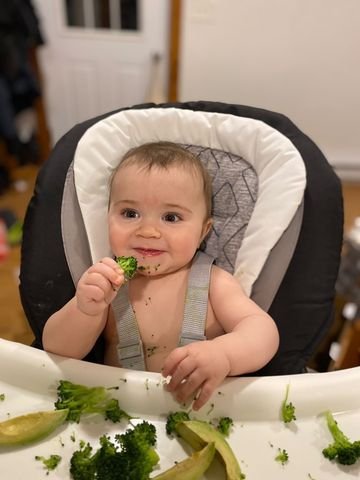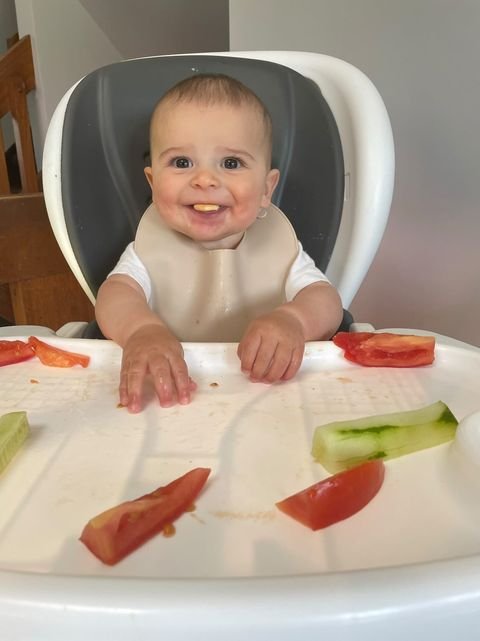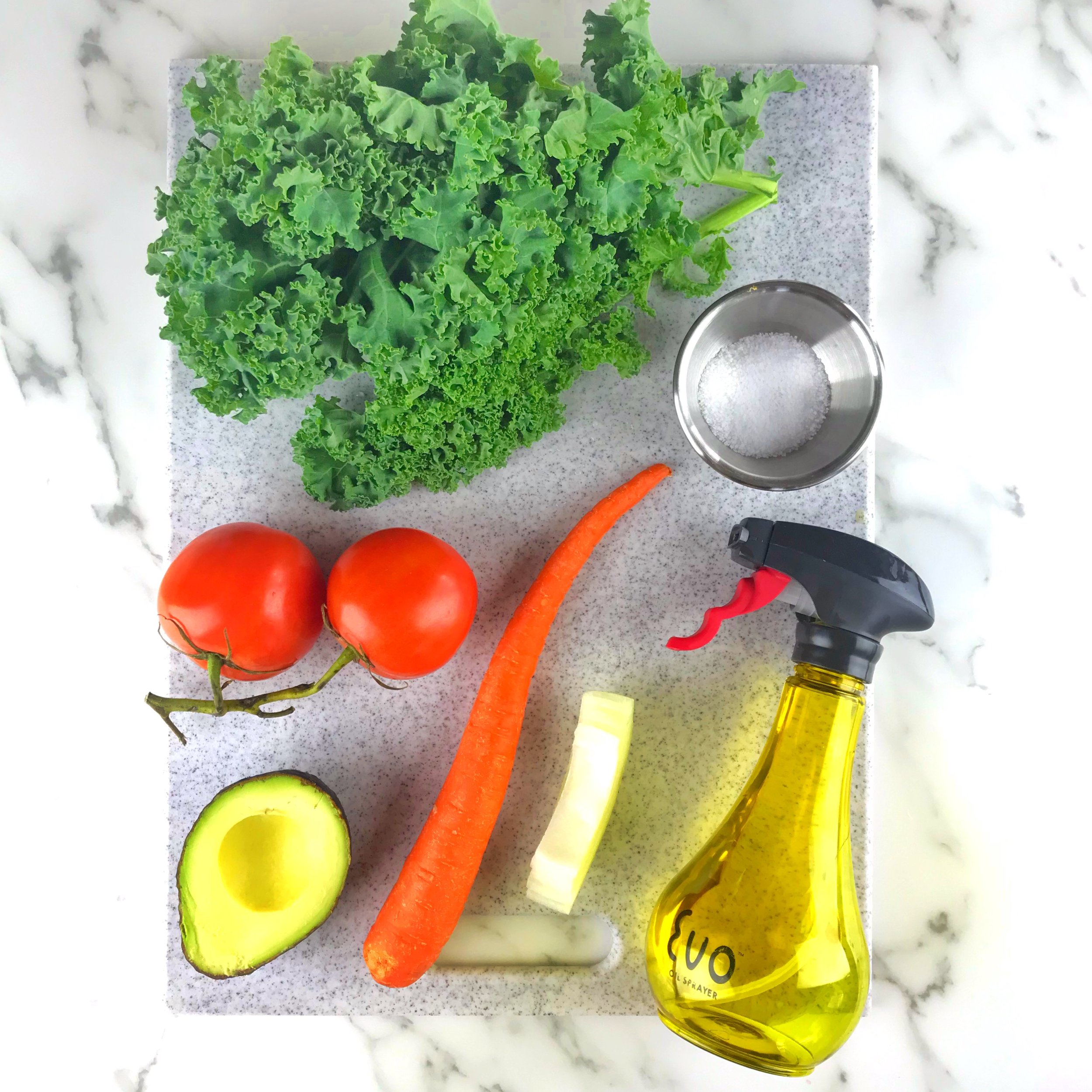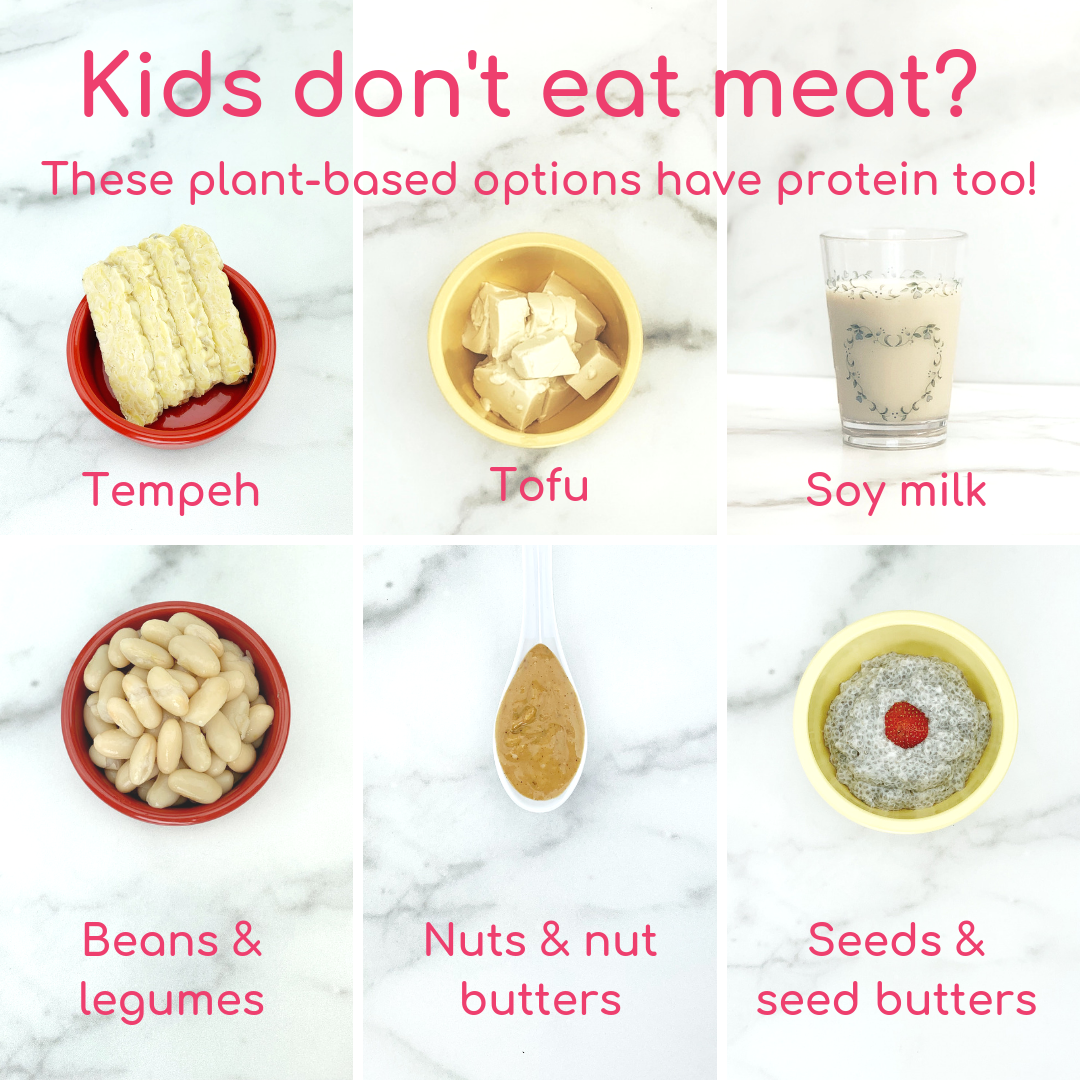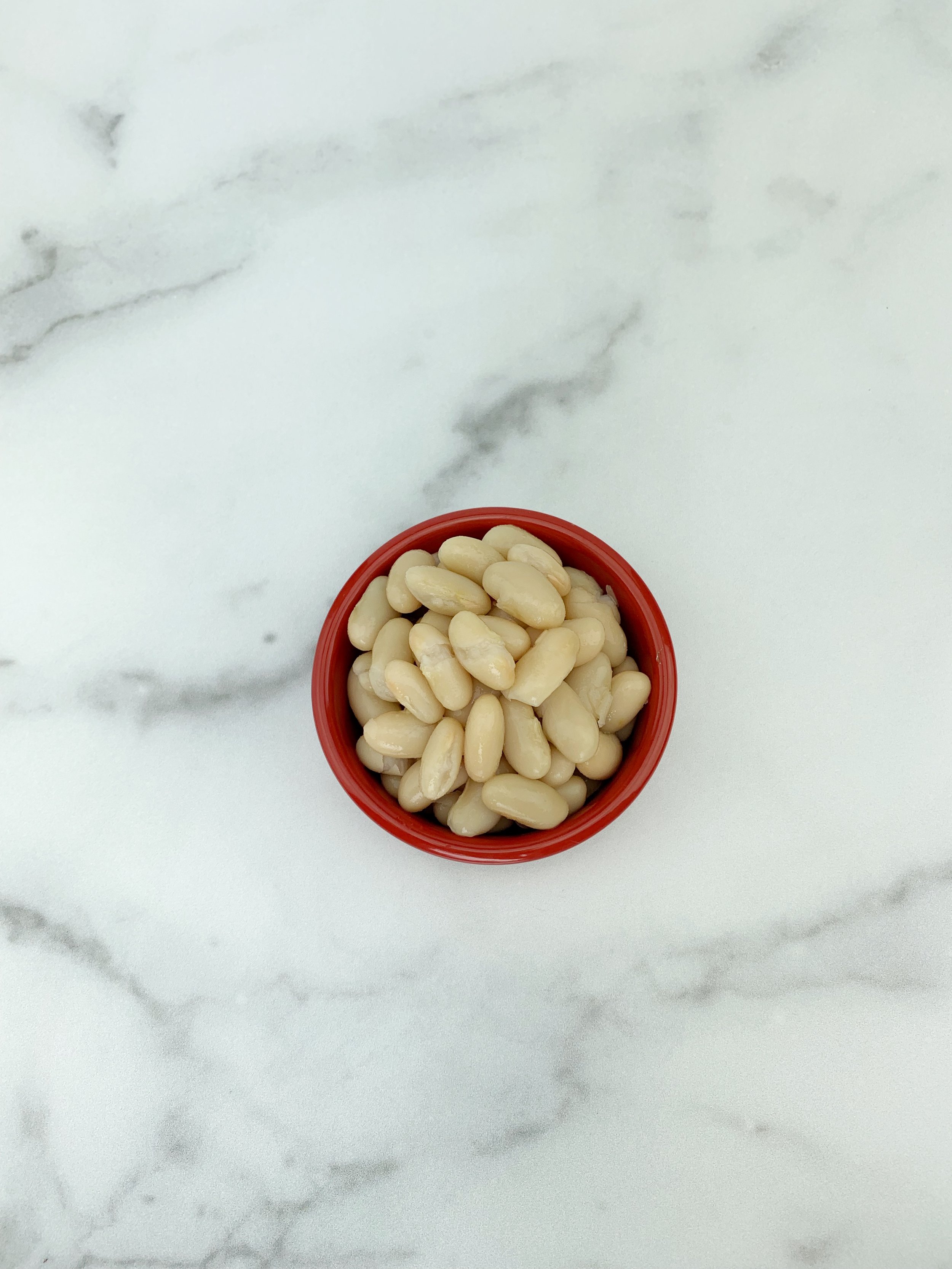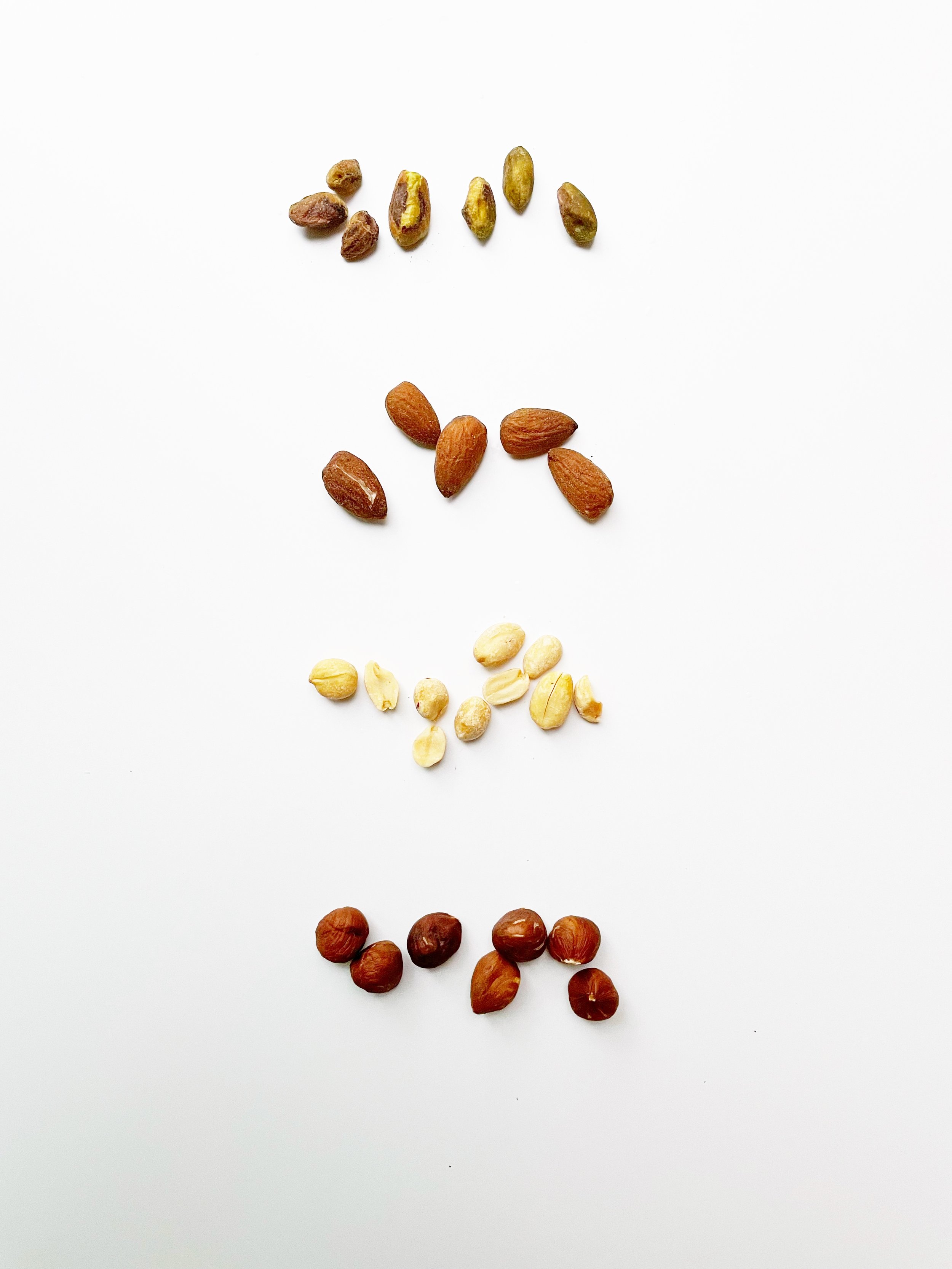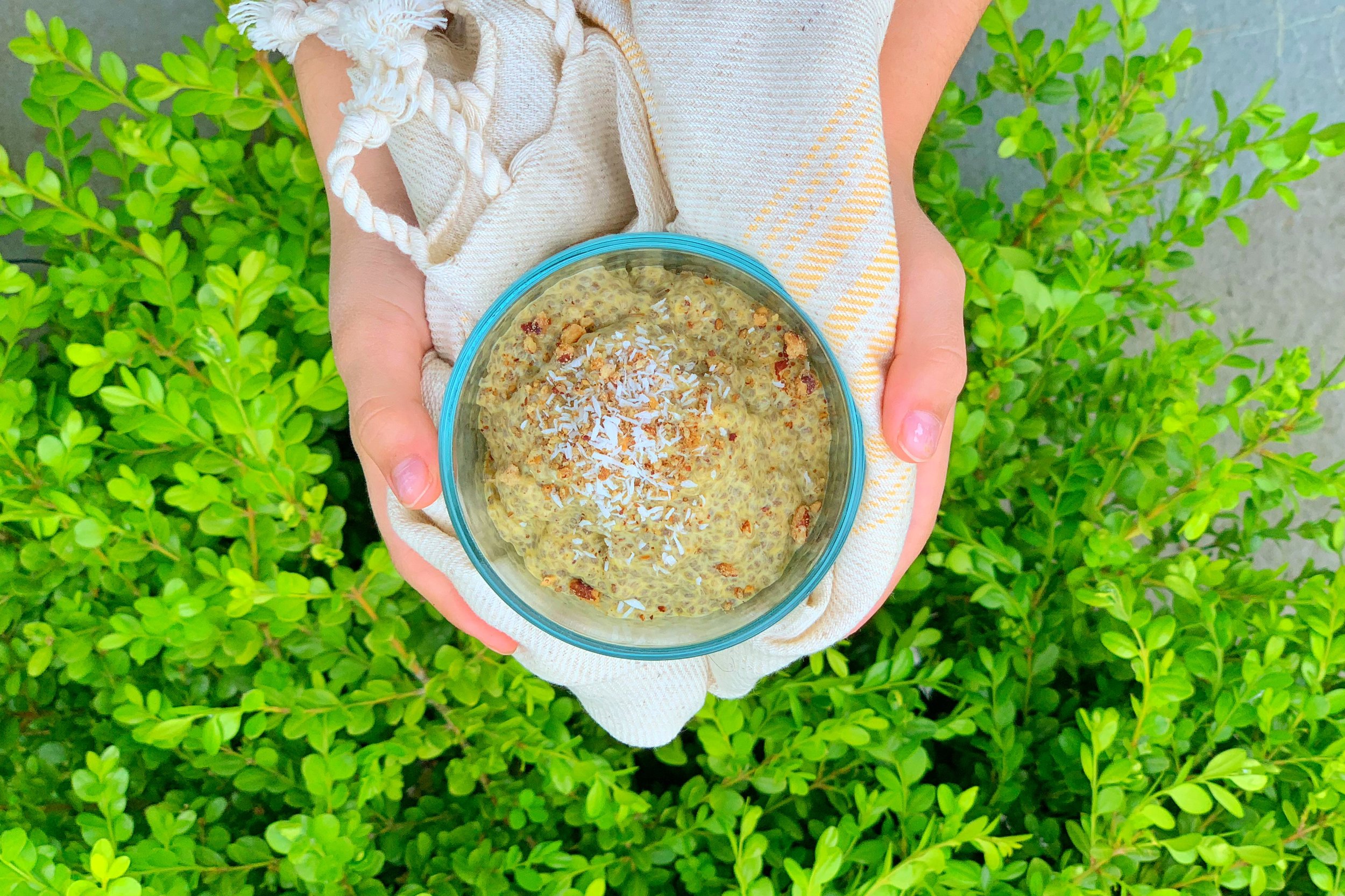Are Plant-Based Diets Safe for Babies and Kids?
Have you heard about the health benefits of plant-based diets and wondered if going more plant-based is a good choice for your family?
Plant-based diets are becoming more popular and common for families with children. According to a 2018 U.S. Gallup poll, 3% of people are vegan, and 5% are vegetarian.
The health benefits of eating mainly whole foods that grow in nature appeal to parents concerned about their children's health. Many of those benefits can be enjoyed even if families don’t become fully vegan or vegetarian, and there are a few variations of plant-based diets which help make it easier to find an option that works best for your family.
The most common question I hear from parents considering a plant-based lifestyle is whether plant-based diets are safe for babies and kids.
According to the Academy of Nutrition and Dietetics, a well-planned vegan or vegetarian diet can provide all the nutrients needed at any stage of the lifecycle and may lower disease risk. However, it's true that without careful planning, kids (and adults, alike) may not get all the nutrients they need to thrive on a 100% animal-free diet.
Keep reading to learn more basics about the safety of plant-based diets for babies and kids, as well as which nutrients will need some special attention in families who choose not to eat animal products.
What Is a Plant-Based Diet?
Plant-based diets primarily consist of fruits, vegetables, whole grains, nuts, seeds, and legumes. Many people think that to eat a plant-based diet, they must give up all animal foods and become vegan, which is not the case.
Here are a few examples of plant-based diets (some contain fish, dairy, and eggs):
Vegetarian. There are many variations of the vegetarian diet. Vegetarian diets usually include dairy products but no meat. Some vegetarians eat fish, and some vegetarians eat dairy, but no eggs.
Vegan. Vegan diets do not contain any animal products such as dairy, eggs, meat, poultry, or fish. Ethical vegans also avoid anything made by animals, such as honey, and ingredients made using animals, such as gelatin and collagen.
Flexitarian. The flexitarian diet combines vegan and vegetarian diets with small amounts of meat once in a while.
Mediterranean Diet. Fruits, vegetables, whole grains, nuts, seeds, olive oil, and fiber are the basis of the Mediterranean Diet. Dairy and small amounts of fish and lean meats contribute to the protein in this diet.
U.S. News ranked the Mediterranean diet in 2022 as the number one healthiest diet, followed by the flexitarian diet in second place.
What Are the Benefits of Plant-Based Nutrition?
Plant-based diets are loaded with fiber and phytochemicals and lower in saturated fats. And they are associated with a lower risk of diabetes, inflammation, and heart disease. In addition, according to the American Cancer Society, a diet rich in plant foods, and low in animal foods and refined carbohydrates may lower the risk of several kinds of cancer.
But kids don't have to worry about these diseases yet, right?
Unfortunately, the rates of type 2 diabetes are on the rise in young children. And one study showed that the negative effects of diabetes are most significant when the disease starts in childhood, compared to when type 2 diabetes begins in adulthood.
Some types of dietary fat, like omega-3s and unsaturated fats are more supportive of overall health and wellness. When eaten in excess, other types of dietary fat (i.e., saturated fats commonly found in animal foods) can raise LDL cholesterol, otherwise known as the "bad" cholesterol that can lead to atherosclerosis (fatty streaks and plaque buildup in arteries).
Research shows that build-up in arteries starts early and fatty streaks start forming in childhood. In addition, high LDL, high cholesterol, and higher weight are all risk factors that speed up the disease progression.
What Are Plant-Based Sources of Protein?
Infancy, childhood and adolescence are periods of rapid growth.
Although most kids get enough protein in their diets (even those who are vegan and vegetarian!), a protein deficiency during childhood can affect a child's development. Children need adequate protein calories for brain development and to prevent malnourishment.
Protein is found in various amounts in many foods, so a balanced diet that includes a variety of the plant-based proteins below usually provides more than enough protein to meet the needs of most healthy kids.
These foods can be offered to babies in infant-safe forms as well, starting at about 6 months of age with signs of readiness for solids, although soy milk should not be offered as a beverage until babies reach 12 months.
beans
legumes
lentils
nuts and seeds
tofu
soy milk and other soy products
edamame
tempeh
Are Plant-Based Milk Alternatives Good for Kids?
Before deciding on the best milk or plant-based milk alternative for your children, best milk or plant-based milk alternative for your family, it's important to note that plant-based milk alternatives and cow's milk are nutritionally different.
Fortified soy milk provides a nutrient profile most similar to that of cow's milk, and pea milk is a great alternative as well. Soy milk is high in protein (and it's a complete protein), while almond milk is an excellent source of calcium. However, most plant-based milks do not contain the same amount of protein, calcium, or vitamin D as cow's milk.
One of the reasons cow's milk is promoted for kids is the fact that it offers plenty of calcium and vitamin D. Most plant-based milks don't contain enough of these essential nutrients to meet the needs of growing bones. However, kids who don’t drink cow’s milk or fortified soy milk can absolutely still get enough calcium and vitamin D to meet their needs. They will simply need to rely on other foods in order to do so, such as calcium-set tofu, almonds, broccoli, and possibly supplements (under the guidance of their pediatrician or registered dietitian), which can take some planning.
Nutrients of Concern for Kids on a Plant-Based Diet?
The biggest concern about the safety of plant-based diets for babies and kids is the potential for nutrient deficiencies.
A precious baby girl getting messy with spinach! Big thanks to her parents for permission to share.
A nutrient deficiency during childhood can affect a child's cognitive and physical development. Iron, calcium, and vitamin D are vital nutrients for babies and kids. Unfortunately, according to the 2020-2025 Dietary Guidelines for Americans, calcium and vitamin D are already in short supply in the average American's diet, and it's even harder to have a high intake of these nutrients when we go more plant-based.
However, it IS possible with planning and attention! Working directly with a pediatric dietitian is a great way to make this process easier and individualized.
Many families I speak with who are concerned about health want their kids to eat only whole foods, but it’s also important to make sure they are getting all of the essential nutrients they need to thrive. If they don't eat any animal foods, they'll need a vitamin B12 supplement - and possibly vitamin D and calcium supplements as well. Be sure to always talk to your child's pediatrician or registered dietitian before offering supplements to kids.
Iron
Iron is found in many different foods, and kids can get enough iron on a plant-based diet if they have a varied diet. However, for some children, it’s not often that "variety" and "food" go hand in hand! When that is the case, parents can help by making sure meals regularly include iron-rich foods their kids like and accept.
Non-heme iron is found in fortified cereals and other plant foods, but it's not absorbed by the body as well as the heme iron found in meats.
Plant-based sources of iron: fortified breakfast cereals, beans, lentils, tofu, nuts, and a small amount in grains (rice, spaghetti, and bread), raisins, cashews, and pistachios.
Calcium
Kids need calcium so their bones grow healthy and strong. While it's found in plant and dairy foods, some plant-food sources, like leafy greens, contain a substance that reduces how much calcium the body absorbs.
Kids can get enough calcium from plant and fortified foods when they eat a variety.
Plant-based sources of calcium: fortified orange juice, soy milk, tofu, soybeans, fortified breakfast cereals, spinach, chia seeds, and bok choy.
Vitamin D
Vitamin D is naturally found in a few foods, and also in some fortified foods. Vitamin D is needed for the body to absorb calcium, giving it a vital role in bone growth.
Vitamin D is unique because the body can make it from the skin’s exposure to sunlight. It’s also primarily found in fortified foods such as milk and some brands of orange juice.
Many children may need a vitamin D supplement, especially those with darker skin and those who live in the Northern Hemisphere, where the days are shorter for several months a year.
Plant-based sources of vitamin D: white mushrooms, fortified soy, almond, and oat milks, and fortified breakfast cereals
Vitamin B12
Vitamin B12 is found in animal foods, and vegans must supplement with vitamin B12. This water-soluble vitamin is required for the healthy development of the central nervous system and healthy red blood cells.
Plant-based sources of vitamin B12: fortified nutritional yeast.
When Should Kids Not Go Plant-Based?
A balanced and well-planned plant-based diet that provides all the nutrients growing bodies and brains need should be safe for most healthy children.
However, a plant-based diet isn’t for every child. Here are a few situations in which excluding food groups is not generally recommended:
Extreme picky eating
It's common for children to go through some form of pickiness during childhood. However, extreme picky eating is a little different.
Some kids have aversions to certain food groups, colors, or textures. Such aversions are very common in children with sensory issues. Given that there may already be a lack of variety in the diets of extreme picky eaters, following a nutrition lifestyle that restricts certain food groups increases the risk that these kids will miss out on crucial nutrients.
Same goes for Avoidant Restrictive Food Intake Disorder (ARFID), which has recently been classified as an eating disorder. It mainly affects children and looks like extreme picky eating on the surface. The difference is that children with ARFID may refuse to eat or even try most foods and lose weight.
Babies born prematurely
Preterm babies are underweight and need a lot of protein for catch-up growth. Protein during the first few months is important for cognitive function as well.
Food allergies
Food allergies can be one of the biggest obstacles to a healthy plant-based diet for children.
Three plant proteins are common food allergens: soy, nuts, and peanuts. Kids with soy and nut allergies can get plant protein from beans, legumes, and soy-free meat substitutes. But some children may need to supplement with vegan protein powder if they aren't getting enough protein.
Final Thoughts on Plant-Based Diets for Kids
The Health-Halo Effect may lead some people to think they're “eating healthy” simply by eliminating animal foods, which isn’t necessarily the case depending on the vegan food choices that person is making on a regular basis. A healthy and balanced plant-based lifestyle is arguably more about the foods we include in the diet, rather than those we exclude.
That being said, when we are watching for potential nutrient gaps, focusing on more fruits, vegetables, whole grains, and plant protein sources like beans, nuts, legumes, soy, and peanuts, and making sure kids are regularly getting a variety of different foods from each of these groups, plant-based diets for little ones are absolutely safe and a fantastic way to go.
What’s your family’s favorite kid-friendly, plant-based meal? Let me know in the comments below!

